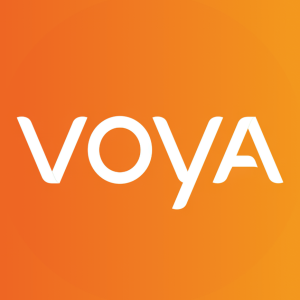Voya Financial helps higher education institutions benchmark health of retirement plans during challenging times
Voya Financial, Inc. (NYSE: VOYA) partnered with Greenwald Research to survey retirement plan decision-makers in higher education, revealing significant insights into the sector's challenges. Key findings show that 41% of institutions reduced employer matching contributions due to COVID-19, with 87% anticipating adverse effects on retirement readiness. Financial wellness programs are a priority, with 74% of institutions offering them, yet 51% seek further assistance from providers. The survey highlights a shift towards prioritizing employee retirement readiness and opportunities for consolidating plan providers.
- 74% of institutions offer financial wellness programs focusing on retirement.
- 40% plan to enhance programs with debt management and one-on-one advisory support.
- 80% of sponsors have exclusive relationships with single plan providers, indicating consolidation opportunities.
- 41% of institutions have reduced or halted employer matching contributions due to COVID-19.
- 87% expect significant impacts on employee retirement readiness from the pandemic.
- 46% view regulatory compliance as a primary challenge in managing retirement plans.
Insights
Analyzing...
Voya Financial, Inc. (NYSE: VOYA), in collaboration with Greenwald Research, recently conducted its first survey of retirement plans in public and private higher education. Approximately 300 key retirement plan decision-makers were surveyed regarding key issues impacting the structure and management of their defined contribution retirement plans. Voya has now released a white paper — Lessons learned on the management of higher education retirement plans in challenging times.1 This report delivers insights about the current challenges that higher education institutions face, including the impact of the COVID-19 pandemic, in motivating employees to save for retirement and constructing an overall financial wellness program that guides employees to and through retirement. Key findings include:
-
COVID-19 is having a widespread impact across higher education: As a result of the pandemic,
41% of higher education institutions have already reduced or stopped their employer matching contribution. The majority (87% ) of higher education institutions expect the COVID-19 pandemic to have a significant impact on their employees’ retirement readiness, and over half (53% ) want providers to offer more help getting employees ready for retirement.
-
Expanding financial wellness offerings is a top priority: The majority (
74% ) of institutions in higher education offer financial wellness programs with robust features that focus on planning for retirement, investing and budgeting. Still, over half (51% ) are looking for support and want help from providers with improving the overall financial wellness of their employees. In the next 12 months, many plan sponsors intend to expand their financial wellness programs to include, for example:
-
Assistance with debt management (
40% ); -
Advisory support through one-on-one counseling (
40% ); -
Online tools and calculators (
38% ); -
Assistance with planning for caregivers and employees with disabilities and special needs (
35% ); and -
Assistance with health savings accounts (
32% ).
-
Assistance with debt management (
-
Opportunities exist to improve plan health through the support offered by plan providers, consultants and advisors: The majority (
80% ) of higher education plan sponsors have an exclusive relationship with a single plan provider. With continued consolidation expected among those using multiple plan providers, there is an opportunity for higher education institutions to lean on plan providers, consultants and advisors to help improve plan health. Nearly six in 10 plans with multiple providers say it’s “very likely” or “somewhat likely” they will reduce the number of providers in the near future, continuing the trend towards provider consolidation. In addition,88% rely on the services of a plan advisor or consultant.
-
Fees, regulatory and fiduciary responsibilities are top concerns for sponsors: Almost half (
46% ) of higher education plan sponsors say keeping up with regulatory changes is the top challenge in managing their retirement plan. For private institutions,42% say meeting fiduciary responsibilities is one of their primary challenges. As a result, nearly half (47% ) of higher education sponsors rely on a plan advisor or consultant to help with fiduciary responsibilities. When it comes to fees,47% of higher education institutions say it’s “very important” to prioritize reducing plan fees and expenses over the next two years.
- Employee retirement readiness is a top measure of plan success: While participation rate has traditionally been the primary measure of plan health, retirement readiness of the employee population is generally the preferred plan success measurement used by higher education plan sponsors, especially for small and larger plans. As a result, about four in 10 of higher education sponsors say motivating employees to save adequately and invest wisely are top challenges to helping prepare their employees for retirement. To help, approximately four in 10 higher education sponsors plan to add a guaranteed income option or an auto-enroll feature to their retirement plan.
“The impact of the COVID-19 pandemic on higher education has been significant and will reshape almost every aspect of how these institutions are managed,” said Brodie Wood, SVP and national practice leader for Education Markets, Voya Financial. “As a result, there is an opportunity for providers — now more than ever — to help higher education plan sponsors better understand how to assist their faculty, administrators and staff to help them get ready to retire better.”
“For starters, the growing importance of financial wellness initiatives in higher education is a key takeaway from the survey — especially as many sponsors plan to expand their offerings to participants in the next 12 months. Plus, with many facing increased budgetary constraints due to the pandemic, rethinking how they design their retirement programs is critical. For example, key plan design best practices such as automatic enrollment, automatic deferral escalation, ‘stretching the match’ and annual re-enrollment can help drive better participant outcomes,” explained Wood.
“The survey also reveals that higher education institutions are focused on providing their employees with guidance to help make informed investment and retirement decisions. Many recognize the value of managed accounts, as






